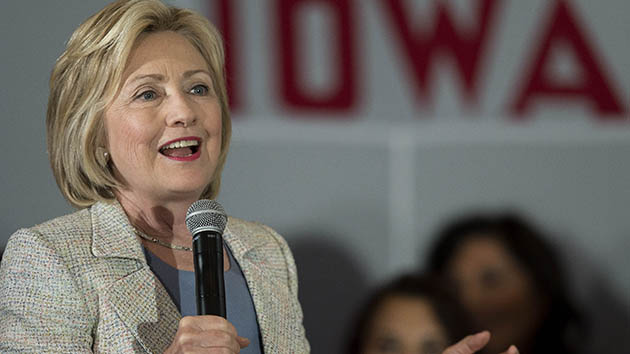Is This Any Way to Run a City’s Schools?
Leaked CTU Proposals Won’t Do Anything to Improve Schools’ Poor Performance
Two ‘Top-Tier’ Candidates Now Pledging to Back Forced-Dues Repeal
(Click here to download the February 2016 National Right to Work Newsletter)
As this Newsletter edition goes to press on February 1, just as the Iowa caucuses are occurring, National Right to Work Committee leaders are encouraged by what the

Committee’s 2016 presidential survey has accomplished so far.
Six candidates who are still in the race at the start of the month have responded to their Right to Work candidate surveys and staked out their position 100% in opposition to compulsory unionism.
Among the candidates who have pledged full support for Right to Work are U.S. Sens. Ted Cruz (Texas) and Marco Rubio (Fla.).
That means two of the three GOP candidates ranking the highest in the famous Real Clear Politics (RCP) average of nationwide polls have sent a clear signal of their intent to stand up against forced unionism if elected.
Trump, Carson and Bush Campaigns Have Yet to Respond To Right to Work Questions
Unfortunately, the other three GOP candidates who are, at press time, in the RCP’s top five have yet to return their Right to Work questionnaires.
“As 2016 Iowa caucus participants cast their ballots, Donald Trump, Ben Carson, and former Florida Gov. Jeb Bush were, at least for the moment, still sitting on the fence with regard to compulsory unionism,” said National Right to Work Committee President Mark Mix.
“But the presidential primary season is just getting underway. There’s still time for Mr. Trump, Mr. Carson, Mr. Bush, and other nonresponsive candidates who remain in the race to stand up for the Right to Work.”
Mr. Mix added that the same goes for this year’s Democrat presidential candidates; however, given Big Labor’s long-time domination of their party’s nominating process, it is unlikely any of them will ever respond favorably to their Right to Work surveys, if they respond at all.
In fact, former U.S. Sen. Hillary Clinton (N.Y.), Sen. Bernie Sanders (Vermont), and former Gov. Martin O’Malley (Md.) have up to now been so eager to woo Big Labor’s support that they are all actually pledging explicitly to veto any national Right to Work legislation that reaches their desk.
To clarify the intentions of all of the announced candidates seeking the GOP and Democrat presidential nominations, last fall the Committee mailed surveys to their campaigns, asking where the candidates stand on nine key compulsory unionism-related issues.
Committee Ready to Mobilize Supporters Across the Country
In December and January, the Committee turned up the heat by mailing letters to pro-Right to Work citizens in several early caucus and primary states. The letters mobilized freedom-loving Americans to contact the candidates and urge them to take a clear stand against compulsory unionism.
“For decades, polls have shown that the vast majority of Americans who regularly vote in federal elections believe laws and other policies that favor forcing workers to pay union dues or fees as a condition of employment are just plain wrong,” said Mr. Mix.
To ensure that forced unionism remains a key issue in the ongoing presidential nomination process, the Committee is now ready to continue mobilizing citizens in the 12 states that hold primaries and caucuses on March 1, and across the rest of the nation.
Committee President: Ideal Is For All Candidates To Back Right to Work
“I would be overjoyed,” said Mr. Mix, “if all the candidates decided, in response to grass-roots activism, to oppose forced unionism in the future, regardless of where they have stood up to now.
“But if it turns out there is only one pro-Right to Work presidential candidate on the ballot in November, I’m confident that candidate can deploy the Right to Work issue advantageously, despite all the forced-dues money the Big Labor political machine will undoubtedly spend.
“And Right to Work members and supporters will have a very positive impact by helping millions of other Americans see how important the compulsory-unionism issue is, and letting them know exactly where the candidates stand.”

Leaked CTU Proposals Won’t Do Anything to Improve Schools’ Poor Performance

Wherever Big Labor wields the power to collect forced union dues, union bosses funnel a large share of the confiscated money into efforts to elect and reelect business-bashing politicians. Employment growth tends to lag as a consequence.

Members Insist They Keep Pro-Right to Work Campaign Promises